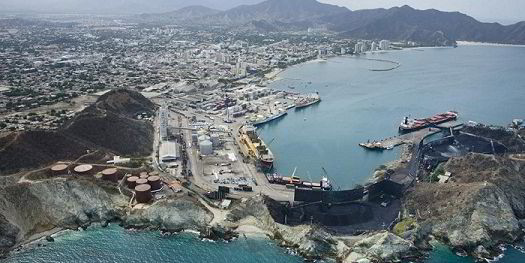Bimco released the results of its first-ever shipowner survey on the efficiency of dry bulk terminals around the world.
The terminal vetting report was based on 443 voluntary surveys that were submitted by shipowners after a port call. Overall, Bimco received results that were based on port calls of some 94 ships across 231 terminals.
Each port was scored on a weighted system, which ranked loading and unloading the most followed by mooring and berth arrangements and information exchange.
Most reports came back positive with 93% of the surveys received ranking ports as average or better in terms of overall efficiency, with the remainder considered fair or poor.
Negative feedback mostly came from the lack of language skills at the port, pressure on the ship's master and crew, local bureaucracy and offensive port authorities. The worst reports were for insufficient moorings and services.
For purposes of ranking, Bimco only highlighted ports that received five or more surveys. Bimco warned that it was hard to draw much statistical significance in terms of regional performance for ports, as Colombian ports drew both the highest and lowest marks. But Bimco says it plans to keep taking surveys annually in order to benchmark the performance at ports.
| Port Name | Country | Reports | Ranking |
| Santa Marta | Colombia | 7 | 1 |
| Bilbao | Spain | 11 | 2 |
| Port Alfred | Canada | 24 | 3 |
| Rio Hania | Dom. Rep. | 7 | 4 |
| Ghent | Belgium | 5 | 5 |
| Vancouver | Canada | 9 | 6 |
| Thunder Bay | Canada | 5 | 7 |
| New Orleans | USA | 18 | 8 |
| Porto Cortes | Honduras | 6 | 9 |
| Point Comfort | USA | 5 | 10 |
| Veracruz | Mexico | 6 | 11 |
| Cartagena | Colombia | 6 | 12 |
| Kingston | Jamaica | 6 | 13 |
| Port-Au-Prince | Haiti | 6 | 14 |
| Barranquilla | Colombia | 9 | 15 |



